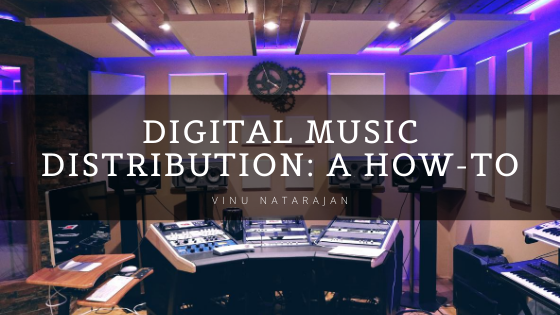The physical distribution of music used to be the only way for an artist to get their vision into the hands of their audience. Along the way, there were many steps, each costing a percentage of the profits. Promoters worked to get the music stocked on the shelves of brick and mortar stores who, in turn, distributed the content at a marked-up cost. Worse still was the strict, binding contract that a newcomer would sign with the big record producers. This led to an obligation that could go on for years.
Digital distribution has been a whole new world for artists and fans alike. Not only is there newly-found freedom to self-promote using a variety of mediums, but there are also fewer middlemen waiting to get a piece of the proverbial pie. Artists benefit by solely holding the rights to their own brand because they are no longer restricted by a record label. They become their own boss and maintain 100% of the royalties when they work with online collaborators.
The question now becomes where to begin. The main goal of any artist is to reach as many people as possible in order to broaden your audience. To do this, you’ll want your music to be readily available on streaming platforms and digital record stores such as Spotify, iTunes, and Google Play, to name a few. Most music is shared through word-of-mouth, social media, and within the streaming apps themselves. Many people nowadays will exchange full custom playlists, instantly getting music into a whole new set of hands.
That being said, you still need a distributor, even though it is no longer in a physical form. Do your due diligence when it comes to researching offers. You should be able to keep 100% of your royalties. Read the fine print of any contract and read reviews and comments by other artists who have worked with them in the past. Some well-known digital distributors are CDBaby, who handle everything from podcasts to merchandising. Octiive handles promotion and marketing for independent bands as well. With several years in the industry, their extensive networking had led to partnerships with marketplaces and streaming services such as Google Music, Spotify, Beatport, Pandora, and Amazon Music.
